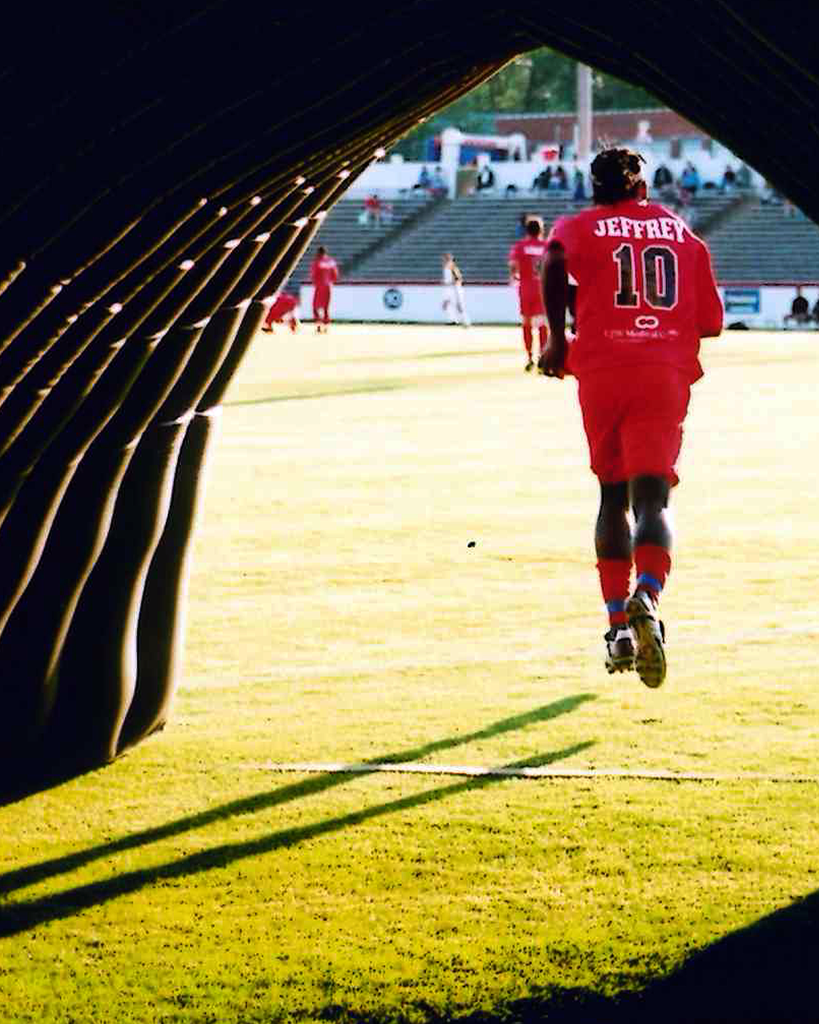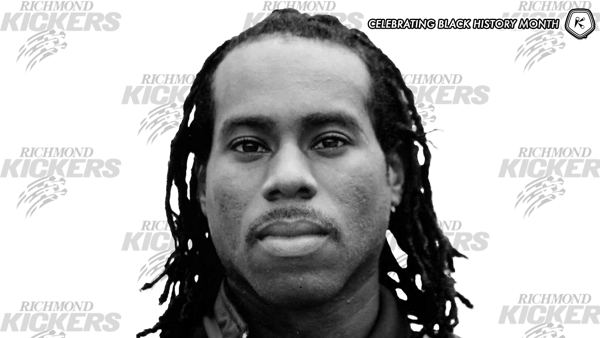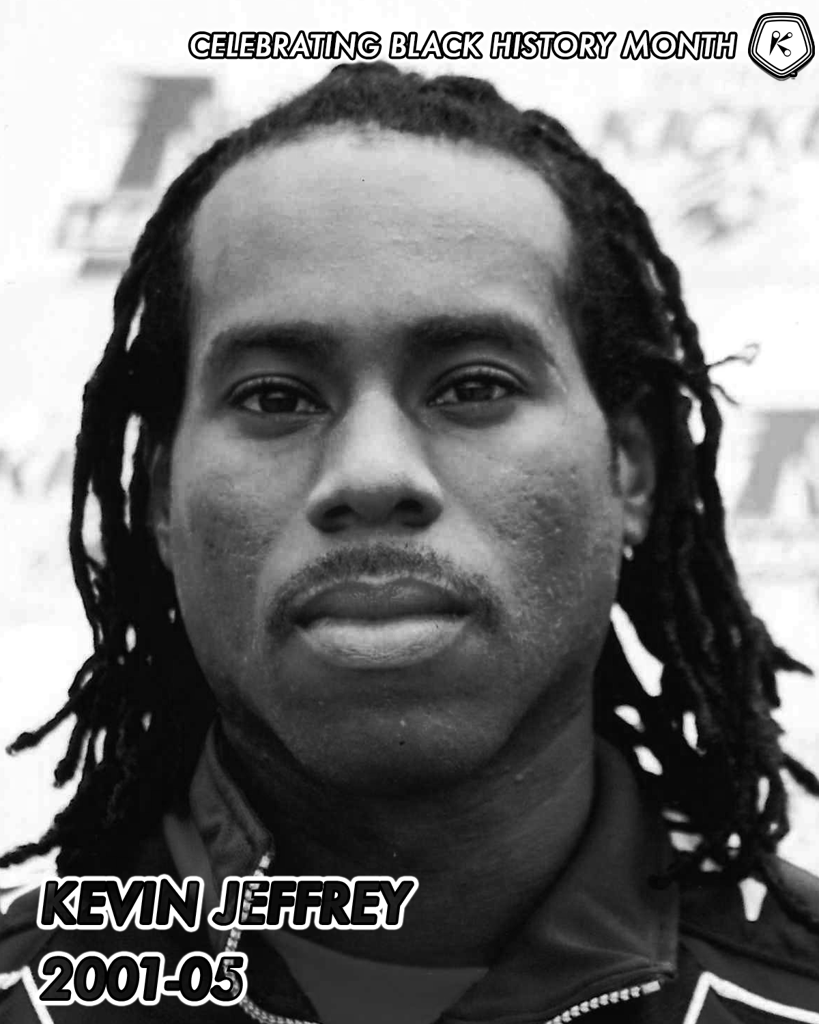
In honor of Black History Month, the Richmond Kickers are excited to celebrate Black club icons. In this edition, we take an in-depth look at Kevin Jeffrey and the impact he had on the Kickers, his time in Richmond, and reflecting on the challenges Black players face in the game.
Kevin Jeffrey was born in 1974 in Trinidad and Tobago, the Caribbean nation that produced Dwight Yorke and Russell Latapy. Jeffrey admired Diego Maradona and would begin his collegiate career playing with that same winners-mentality with the Yavapai College Roughriders, where he led the team to a championship in 1997. The very same year he was awarded the NJCAA Player of the Year.
From 1998-99, Jeffrey played for the Virginia Commonwealth University (VCU) Rams, where he was named to the first-team All-Colonial Athletic Association team both years and won Virginia State Player of the Year in 1999.
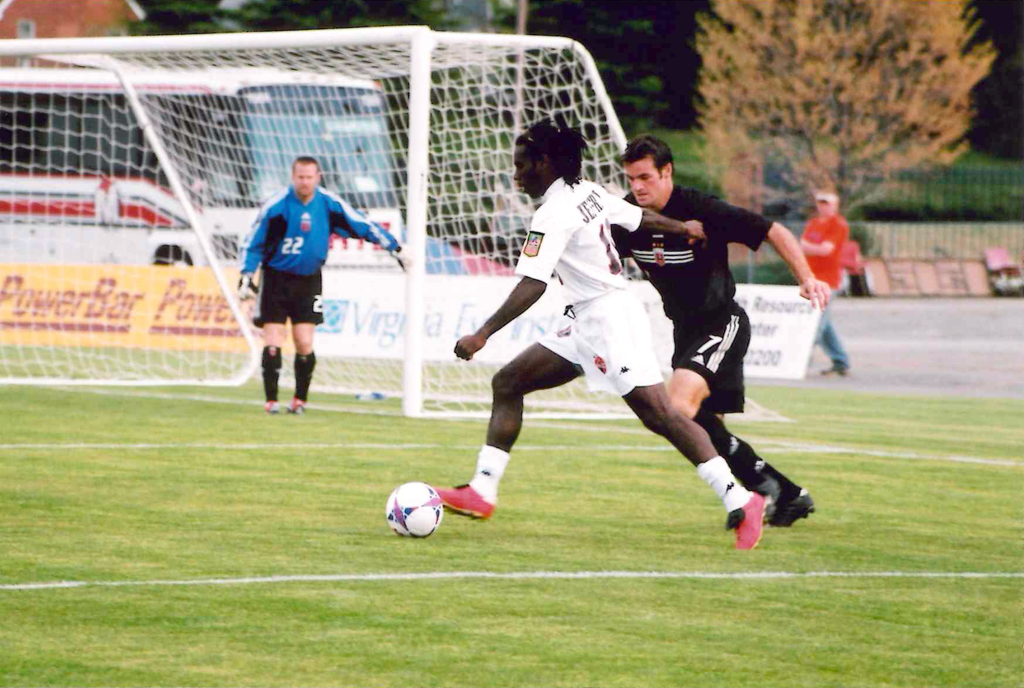
From the start of his collegiate career, fans and viewers alike could tell that Kevin Jeffrey was a striking force to be reckoned with, tallying 29 goals and 7 assists in 38 games for the Rams. He held the school record for most goals in a season with 18. Jeffrey quickly made his mark in Virginia soccer, before heading back to Trinidad and Tobago to kickstart his professional career with San Juan Jabloteh F.C. and soon after was the first overall pick in the 2000 A-League Draft by the San Francisco Bay Seals where he scored 12 goals and 3 assists as a rookie.
Then 2001 came around, the Richmond Kickers signed Kevin Jeffrey, and the rest is prolific goal-scoring history. Jeffrey said he still feels a connection to Richmond.
“I spent five years with the Kickers and two years at VCU, so most of my U.S. life was spent in Richmond,” Jeffrey said. “So Richmond holds a special place in my heart, and obviously, the Kickers is a very special team to me. Being a part of the Richmond Kickers, I always felt, basically, just like the other guys.”
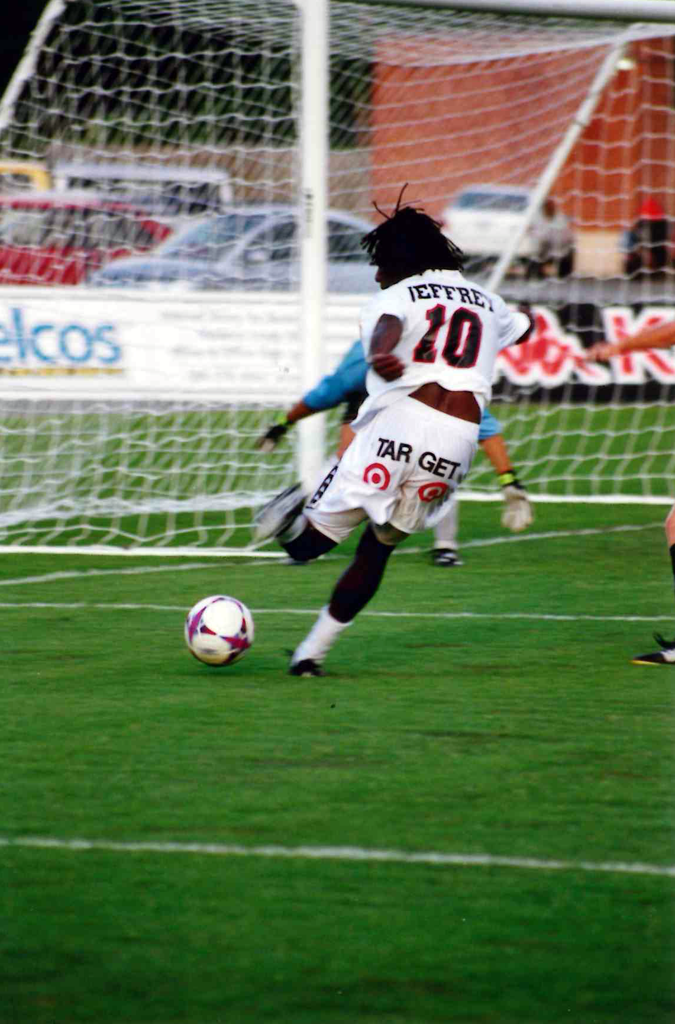
In his first season with the club, Jeffrey led the team with 20 goals and 10 assists in 33 appearances — a goal contribution every 82.7 minutes. Needless to say, the Trinidadian talisman was a huge influence on the team going forward as the Richmond Kickers were at the top of the group in their conference and led the A-League in points as well.
From 2002-2005, Kevin Jeffrey would go on to average 9 goals and 6 assists a season and be the goal-scoring and assists leader for the Kickers in 2003 with 10 goals and 9 assists. Jeffrey was also the Richmond Kickers Players’ Choice MVP in 2001 and 2003 and made his international debut with Trinidad & Tobago in 2003 in a friendly match against Cuba. A few years later in 2005, he helped the Kickers reach the USL Championship finals against the Seattle Sounders.
Riding off of a successful stretch with the Richmond Kickers, playing under Head Coach Leigh Cowlishaw and alongside club legends such as Rob Ukrop and Ronnie Pascale, Jeffrey would be regarded as, “by far Richmond’s most dangerous player,” during his stint with the Kickers, and would knock in a grand total of 47 goals and 29 assists in all competitions. After a meteoric four-year run, Jeffrey parted ways with the Richmond Kickers following that 2005 championship appearance.
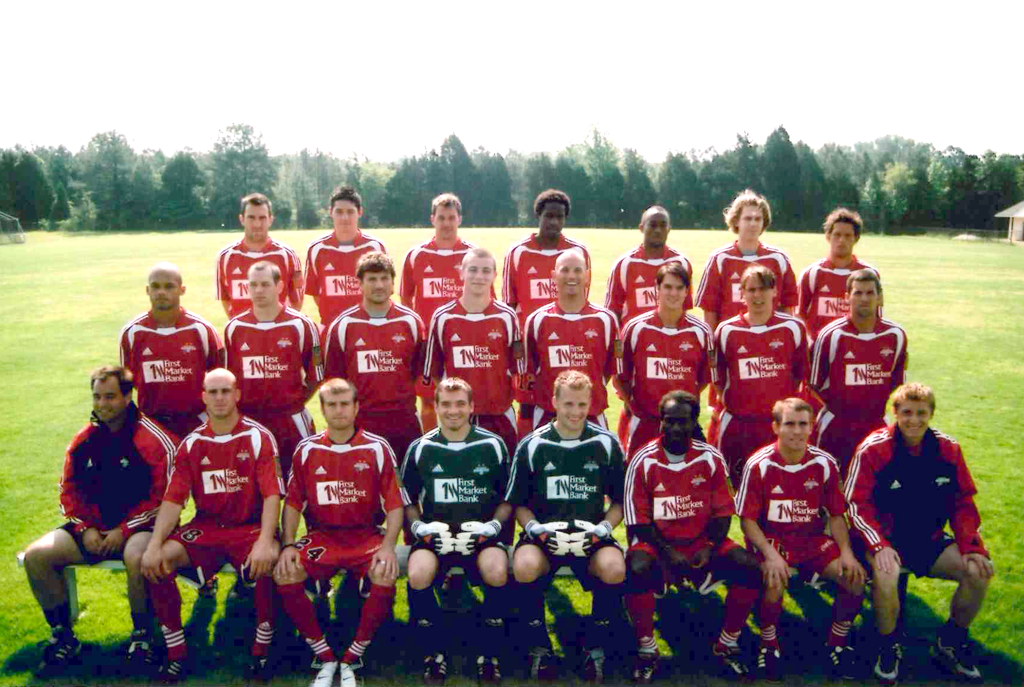
Jeffrey shed light on how he dealt with some racial abuse in his playing history and said he believes turning the other cheek, and non-violence was his way of dealing with it.
“I am comforted in the fact that you might hit me up with a racial slur, but somewhere along the lines of life, right, that will come back to you,” Jeffrey said, “The race thing is really about how you’re educated. And I’m not talking about, you know, university and college and high school and stuff. It’s what you got from home, and I’m saying, how you’re raised is your foundation in life.”
“Obviously football is life, and a lot of stuff that you do within a football group, it’s a microorganism of life, when you’re part of a soccer team. I’ve been fortunate actually to be part of some teams here in the US that have been very, very open to diversity.”
Jeffrey’s pragmatic outlook on racial abuse in the sport highlighted the importance of embracing like-minded individuals and coming together as a team regardless of background.
“Whether you’re white, you’re Black, Asian, or Hispanic, it’s either you’re a good person, or you’re a bad person,” Jeffrey said, “And I always try to connect with people who are on the more positive side of life. I don’t look at a person’s ethnicity or their race.”
Jeffrey said that though he feels sports transcend ethnicity he feels what is important is seeing minorities in higher positions. “Minority individuals find it hard to hold high places in sports, still, for the most part. And I would like to see that change,” Jeffrey said.
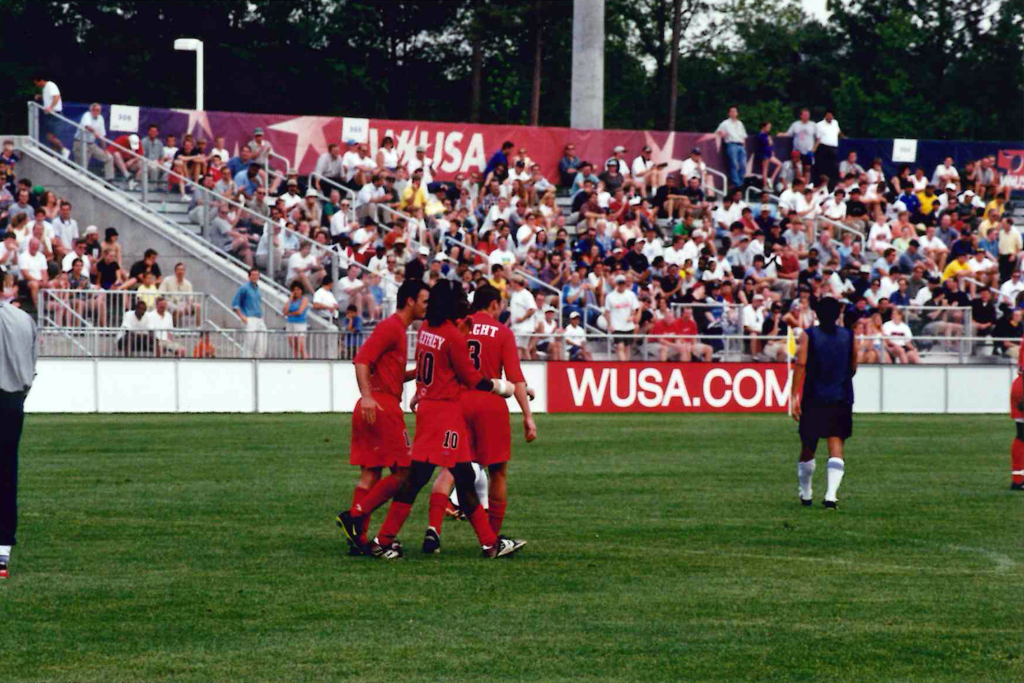
Jeffrey would play two more professional seasons before hanging up his boots in 2007, and he reflected positively on his eight seasons as a pro.
“Obviously football is life, and a lot of stuff that you do within a football group, it’s a microorganism of life, when you’re part of a soccer team,” Jeffrey said. “I’ve been fortunate actually to be part of some teams here in the US that have been very, very open to diversity.”
